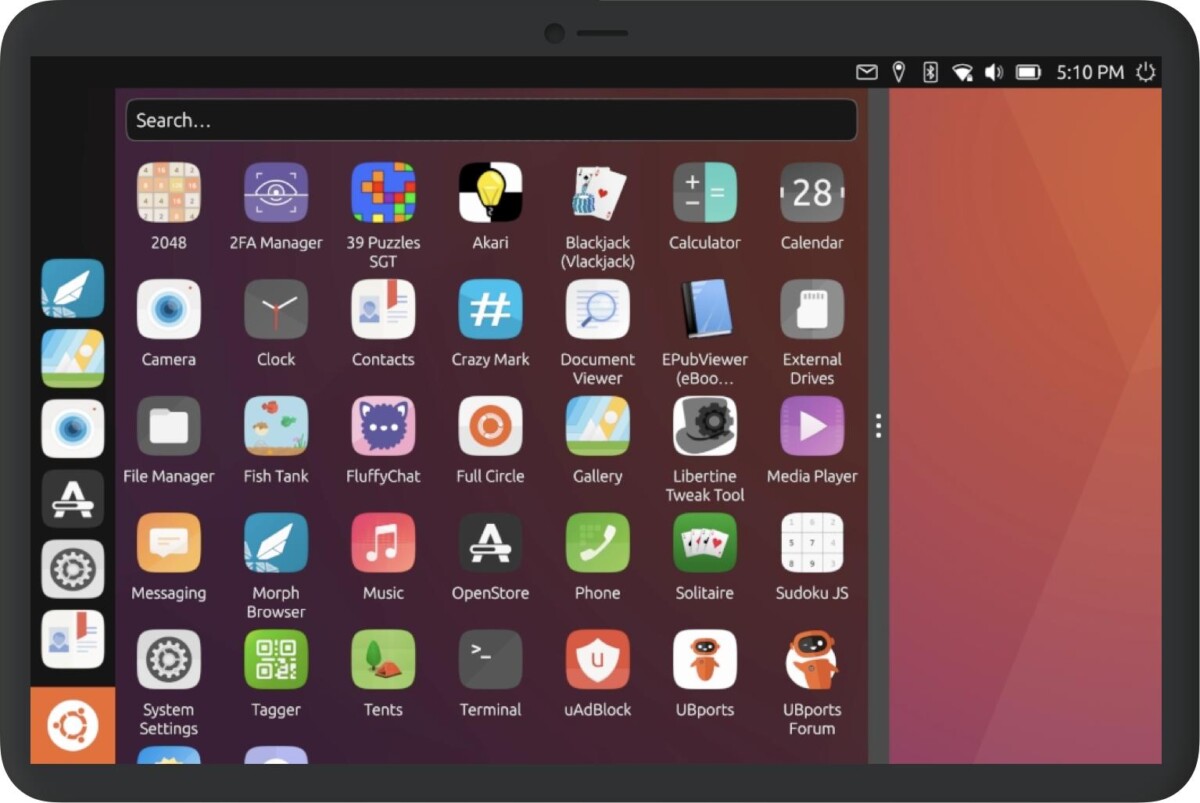In a world where Android and iOS reign supreme in the mobile operating system market, the search for a viable third competitor continues. The giants have tried and failed. Nevertheless, there are still players looking to make a name for themselves, and Ubuntu Touch is one of them. Ubuntu Touch 20.04 has just arrived, with an expanded base of compatible smartphones.
For years, Android and iOS have dominated the mobile operating system market. While several competitors tried to make a name for themselves, such as Blackberry OS, Windows Mobile, Windows Phone, webOS, Tizen, and various GNU/Linux distributions, they all ultimately failed. Some are still trying, like Ubuntu Touch.
You are probably already familiar with Ubuntu, the most popular GNU/Linux distribution for desktop computers. Ubuntu Touch is its mobile counterpart, offering special attention to user privacy and a very advanced configuration.

Initiated by Canonical as a desktop-mobile convergence project, Ubuntu Touch was picked up by the UBPorts community after Canonical pulled out to focus on cloud and IoT. The first stable version was launched in June 2017.
Unlike the desktop version of Ubuntu, Ubuntu Touch cannot be easily installed on all smartphones. The number of compatible devices is limited, although this changes with Ubuntu Touch OTA-2.
Greater compatibility
With the release of Ubuntu Touch OTA-2, devices such as the Fairphone 3, F(x)tec Pro1 X and Volla Phone X23 are now supported, adding to the already existing list, including the Fairphone 4, the Google Pixel 3a and 3a XL, the OnePlus 5, 5T, 6 and 6T, and the Volla Phone 22. Ubuntu Touch 20.04 has therefore expanded its base of compatible phones.
This new version brings five new features or tangible improvements, although they are relatively minor. Ubuntu Touch is not without its problems. MMS is difficult to set up, Bluetooth is unreliable, and installation requires rooting the device.
Existing Ubuntu Touch installations should receive the update automatically, and new users can find download links and instructions at devices.ubuntu-touch.io.
Despite everything, it’s hard to imagine Ubuntu Touch winning. It remains very confidential. The operating system, while innovative and privacy-focused, has yet to break into the market dominated by Android and iOS. Compatibility limitations, installation challenges, and issues with some core features keep Ubuntu Touch in a niche.
To follow us, we invite you to download our Android and iOS application. You can read our articles, files, and watch our latest YouTube videos.
